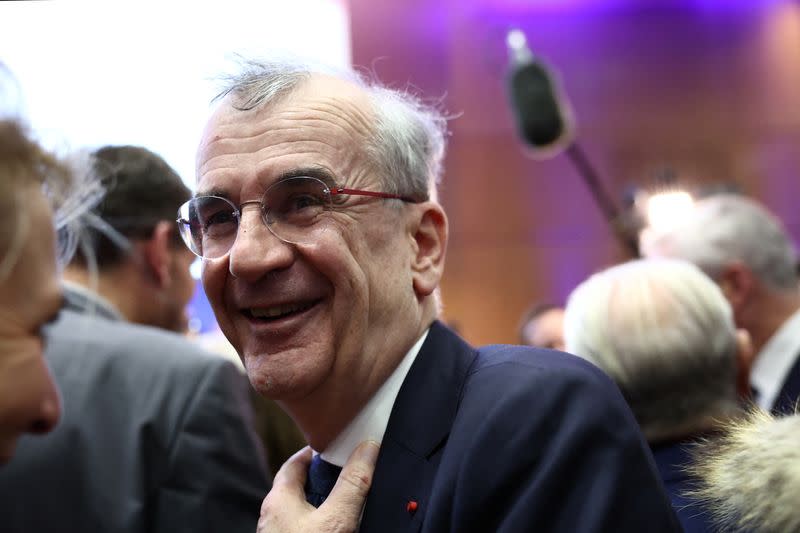ECB maintains cloud of uncertainty over rate cuts

FRANKFURT/DAVOS/HELSINKI (Reuters) -European Central Bank interest rates are likely to come down from record highs this year but policymakers maintained on Tuesday a cloud of uncertainty over the timing of the moves, even as investors bet on early and aggressive policy reversal.
The ECB ended its quickest interest rate hike cycle in September and with inflation now slowing sharply, the debate is increasingly focusing on the timing of the first cut in the ECB's record high, 4% deposit rate.
Policymakers speaking on Tuesday expressed a wide array of views, highlighting the uncertainty over interest rates and inflation, which surprised policymakers both in how quickly it surged and how rapidly it declined in the post-pandemic period.
Portuguese central bank chief Mario Centeno said a rate cut should be part of the discussion and no option should be taken off the table.
"When time comes, we will discuss rate cuts," Centeno told Reuters. "If you ask me if this is the time, I think we need to be prepared to discuss all topics and being data dependent means taking all data on board."
His comments come after a host of conservatives, including ECB board member Isabel Schnabel and German central bank chief Joachim Nagel both said that it was too early to have such a conversation.
Finnish policymaker Tuomas Valimaki meanwhile made the case for waiting to ensure the ECB did not jump the gun.
"It’s better to wait a bit longer than doing a premature exit from this restrictive level, and then perhaps to having to do a reversal," Valimaki told Reuters. "I see a clear need to get enough evidence that we are on track."
French central bank chief Francois Villeroy de Galhau was even less committal.
"Barring major surprises - we look at the Middle East - our next move will be a cut, probably this year. I will not comment on the season," Villeroy told a World Economic Forum panel.
The divergent views are making it difficult for markets to gauge where the ECB is going and investor bets have moved sharply in recent weeks.
Six rates cuts are currently priced in by markets for this year with the first move coming in March or April, a timeline some policymakers have openly rejected as too aggressive.
Boosting the dovish case, a fresh ECB survey on Tuesday showed that consumers slashed their inflation expectations near the end of last year.
The latest round of the poll, carried out in November, showed the median household expected prices to grow by 3.2% in the following 12 months, down from 4.0% a month earlier, while expectations for inflation three years ahead came down to 2.2% from 2.5%.
A key issue for policymakers is the development in wages and that may not be clear until mid-spring when data on first quarter wage deals is published.
Still, Centeno said he did not expect an undue surge in real wages while Valimaki said wage developments were so far in line with the ECB's own projections.
Another issue is just how quickly the stagnant economy will recover. While Valimaki predicted a consumer-led rebound for this year, Centeno warned that the first quarter will remain especially weak, a drag on demand and prices.
(Reporting by Balazs Koranyi, Francesco Canepa, Anne Kauranen and Divya Chowdhury; Editing by Andrew Heavens and Susan Fenton)

 Yahoo Finance
Yahoo Finance 